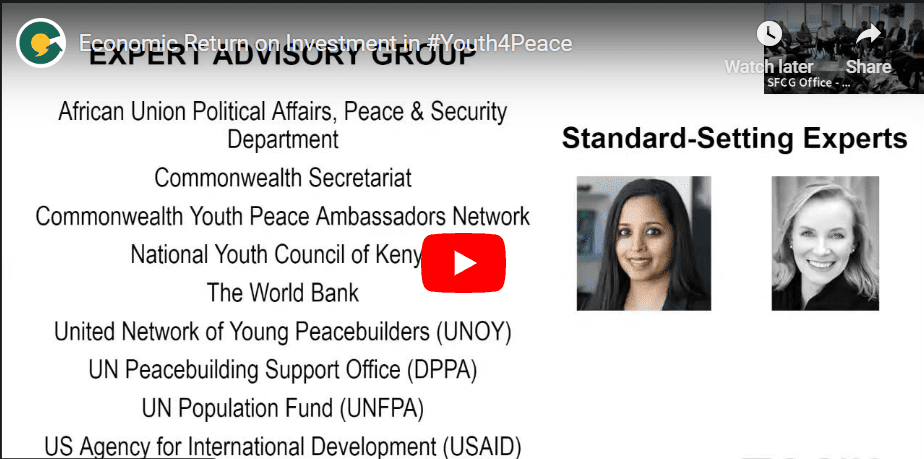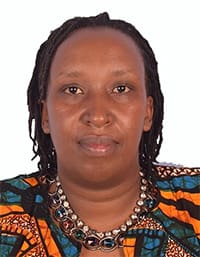What is Social Return on Investment (SROI)?
Social Return on Investment (SROI) can be an incredibly powerful way to understand the value (social, economic, and environmental value) created by different kinds of locally rooted impacts young peacebuilders are shaping in their communities. SROI is an approach to measuring and understanding the past or future impacts of an intervention experienced by a community and other key stakeholders, including the funders and policymakers.
The SROI results can provide answers to a very important question asked by decision-makers: “What is the long-term value from these services?”
The SROI measures change in ways that are relevant to the people or organizations that experience or contribute to it.
Currently no standard indicators, standard methodologies, or cost-effective tools have been widely embraced by young people or the international community to understand and measure youth-led individual or collective efforts to prevent violence. The SROI approach has the potential to influence the YPS field writ large. SROI methodology, which has an international standard and assurance process stewarded by Social Value International, has not previously been tested within the broader YPS space. This is one of the leading reasons for the proof-of-concept approach Search and our partners are undertaking.
Currently, there are no standard indicators, standard methodologies, or cost-effective tools young people or the international community can use to understand and measure youth-led individual or collective efforts to prevent violence. The SROI approach has the potential to influence the YPS field writ large. But the SROI methodology has not been tested within the broader YPS space. This is one of the leading reasons for proposing a proof-of-concept approach.








